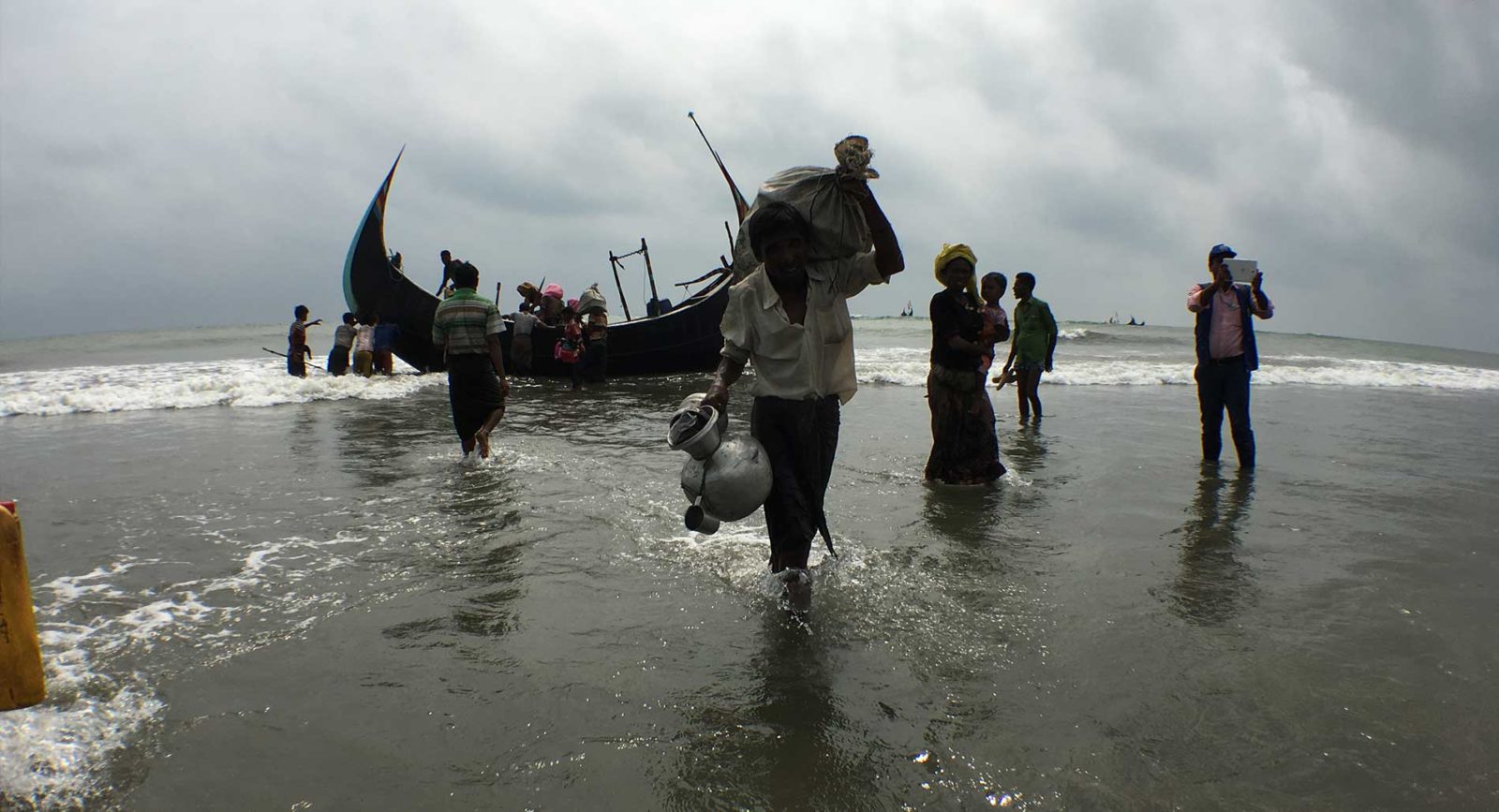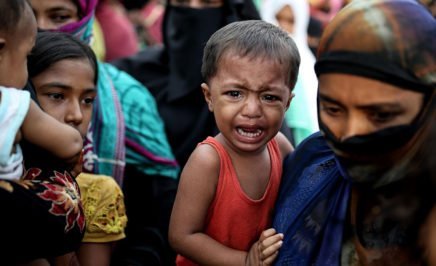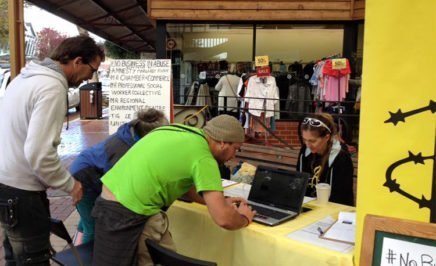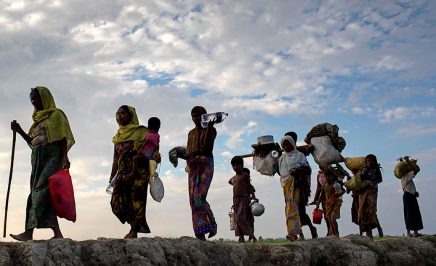More countries need to step up and pledge their support for Rohingya refugees in Bangladesh amid an unprecedented humanitarian crisis.
The meeting of high-level representatives of donor countries at the UN’s office in Geneva on Monday must include pledges of new money, including from countries in the region, to support rising numbers of Rohingya refugees who have sought shelter in Bangladesh’s Cox’s Bazar district.
The recent influx estimated to be nearly 600,000 people has brought the total Rohingya refugee community in Bangladesh’s Cox’s Bazar district to more than 800,000.
“This is an unprecedented crisis that needs an immediate and sustained response from the international community. This means that more countries, particularly those from the region, need to play a much bigger role and share the burden of responsibility. Bangladesh, a poor country which has shown extraordinary generosity, cannot be left to deal with this situation alone,” said Omar Waraich, Deputy South Asia Director at Amnesty International.
“These deeply traumatised refugees are subsisting in extremely difficult conditions, with no prospect of being able to return home any time soon. The international community must mount a response that addresses both their immediate and long-term needs.”
An Amnesty International delegation visiting the refugee camps in Bangladesh’s Cox Bazar district this week found overcrowded camps where nearly 600,000 new arrivals are squeezed into flimsy bamboo and tarpaulin tents with severely constrained access to life-saving assistance, medical facilities, safe areas for women, and schooling for the children who make up more than 61% of the refugee population.
Humanitarian agencies have identified high levels of severe acute malnutrition, particularly among children, as well as risk of diseases, such as cholera, due to poor water and sanitation conditions.
There are also clear needs for comprehensive psychosocial assistance or support programmes for a deeply traumatised population, who will need help over the short, medium and long term if their full physical, mental and emotional recovery is to be assured.
Urgent needs
The international community should address a range of urgent needs of Rohingya refugees, from transportation to camps, to medical and life-saving assistance at every stage.
Refugees interviewed by Amnesty International recalled harrowing journeys from their villages, where they came under attack, to the camps in Bangladesh. Many said they had been forced to pay extortionate sums to be transported in boats to Bangladesh. Those without money told Amnesty International that they were forced to part with jewellery and other valuable possessions to pay for the boat crossing.
“Rohingya refugees who walked for days – often barefoot, hungry and injured, depleting all reserves – are faced with extortion to make the last leg of their journey,” said Charmain Mohamed, Amnesty International’s Head of Refugee and Migrant Rights.
“When they finally reach Bangladesh, some of the refugees have been left to make a miles-long walk further still, to reach the camps. Their journeys should not be made any more difficult than they already are. They need to be supported at every stage of their search for safety.”
Helping the Rohingya going forward
Given the failure of accountability in Myanmar when it comes to human rights violations against the Rohingya, including crimes against humanity, many Rohingya refugees told Amnesty International of their fear of returning to Myanmar unless conditions allow them to do so safely and with dignity.
Beyond the immediate needs, the international community must help Bangladesh cope with the humanitarian crisis going forward. This includes calling for accountability for crimes against humanity and the dismantlement of the entrenched system of discrimination that the Rohingya have long endured in Myanmar.
Donors should think longer term when it comes to Rohingya refugees in Bangladesh, starting with the following steps:
- As the first step to help refugees build resilience and independence over the medium and longer term, donors should scale-up cash assistance programming, so that refugees can be helped to access other necessities and begin reclaiming their dignity.
- They should immediately fund education programming for refugee children, who constitute at least 61% of the recent influx.
- Provide expert psychosocial support to heal a deeply traumatised population
- Address severe acute malnutrition, particularly among vulnerable children
- Ensure a comprehensive approach that includes support for host communities.
- Include both the local and refugee communities in the design and implementation of programmes, making sure that people receive the aid most appropriate to their needs.
- The currently overcrowded camps, sprawling across a hilly topography on a single site, needs to be replaced with adequate land and infrastructure, including proper site planning that will enhance humanitarian access and diminish the possibility for conflict and other problems.
“Donors should think longer term when it comes to Rohingya refugees. The scale of this humanitarian crisis is such that the international community is continuously failing to anticipate the response needed. The Bangladeshi authorities and humanitarian groups are in a desperate scramble to scale up their operations. They must be helped not just over the next few months, but for as long as it remains unsafe for people to return home voluntarily and with safety and dignity,” said Charmain Mohamed.
Dire humanitarian situation in Rakhine
While Monday’s pledging conference is focused on the humanitarian needs in Bangladesh, the international community must not forget the humanitarian crisis unfolding in Myanmar.
“The humanitarian community must be granted full and unimpeded access to areas of Rakhine State affected by the conflict, allowing them to assess and provide for their shelter, food, medical and protection needs,” said Charmain Mohamed.



